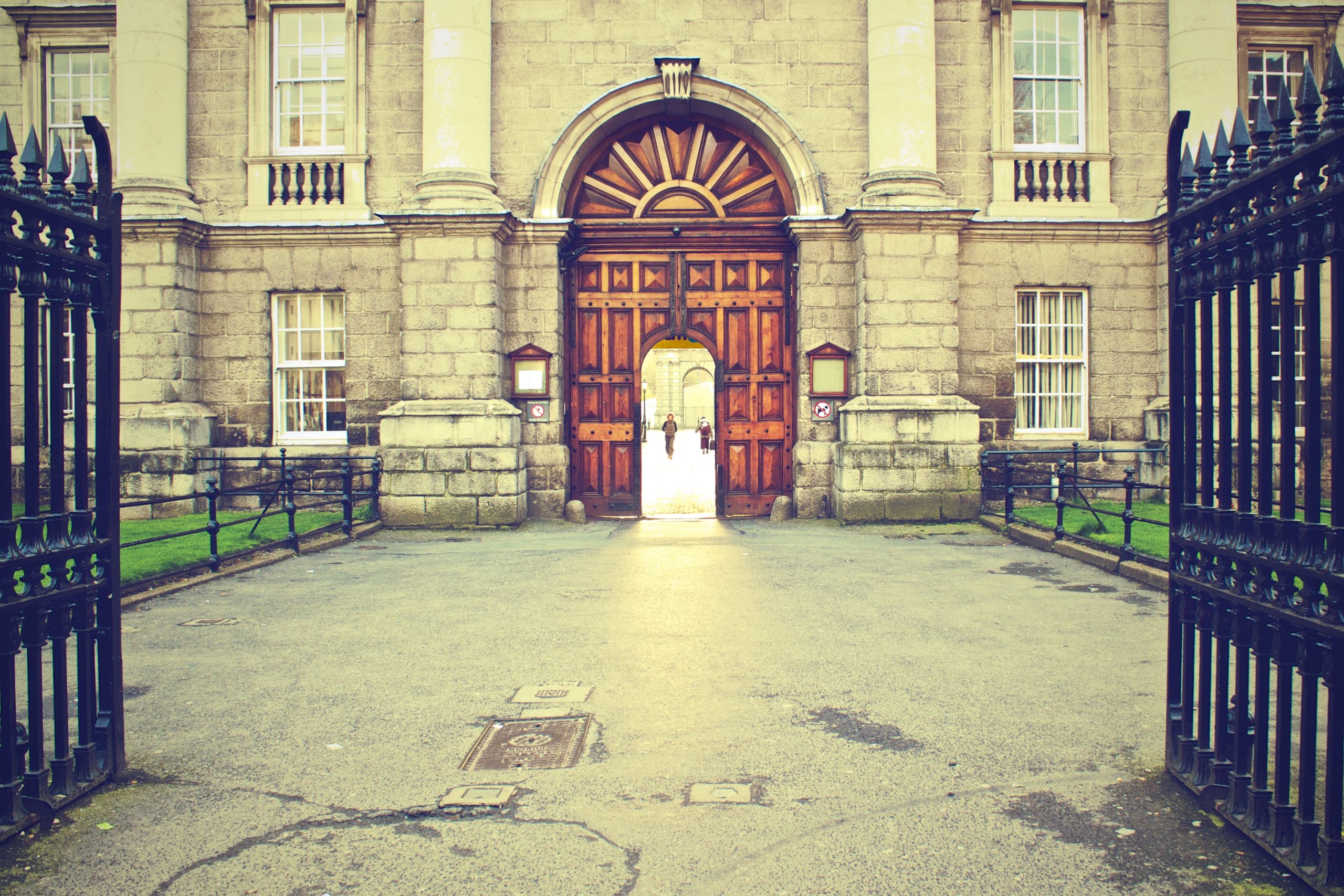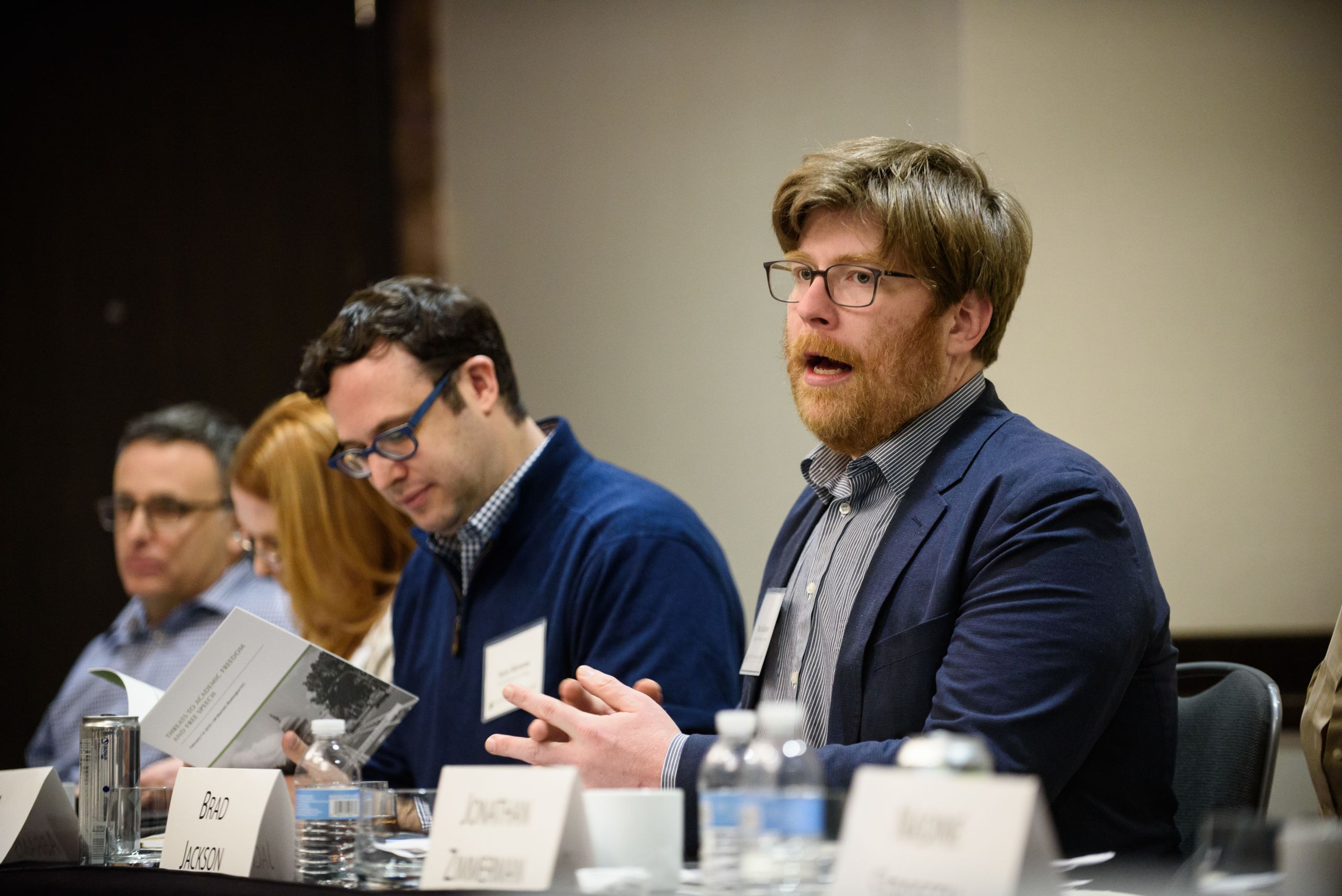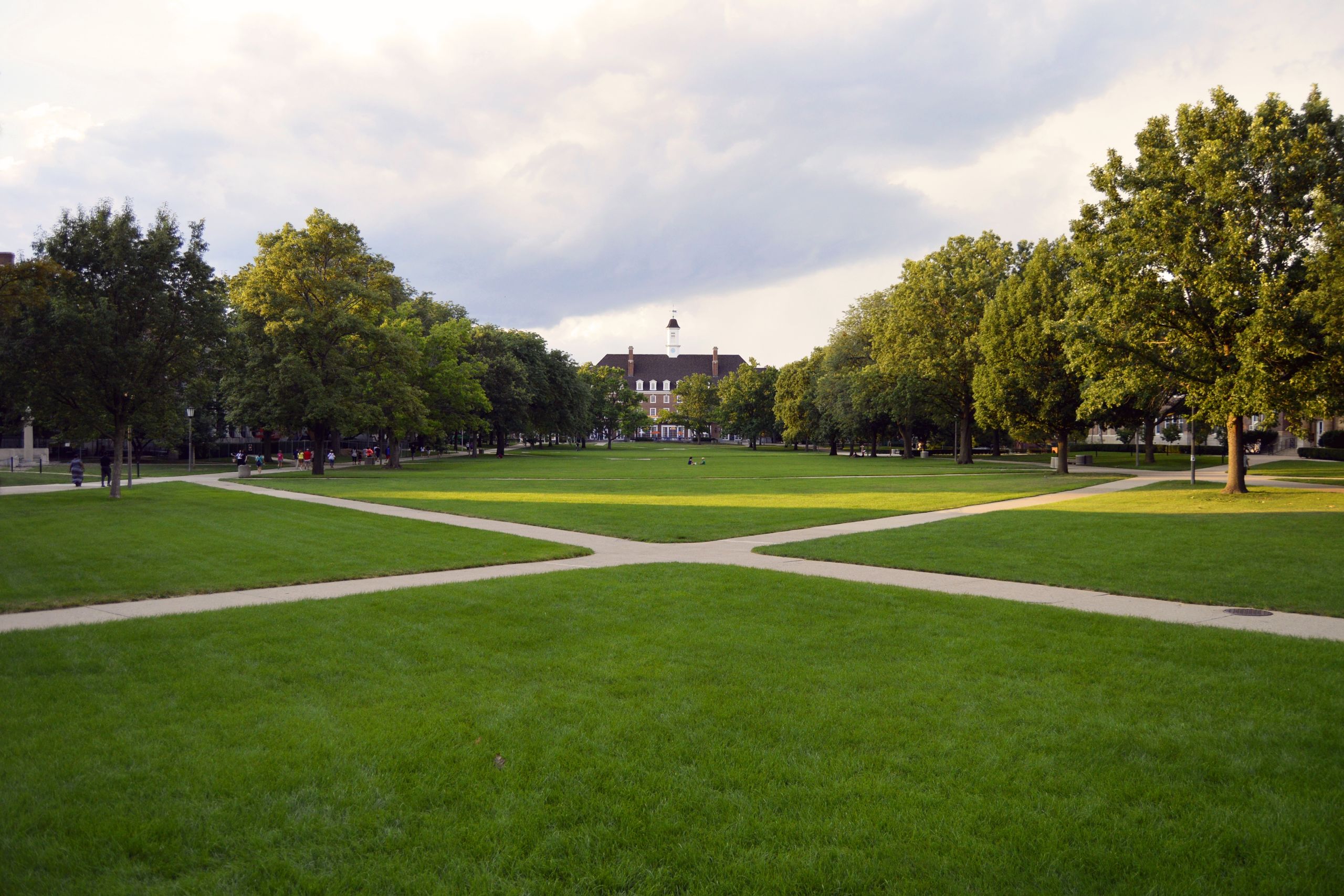How to Handle Controversial Speakers on Campus
A 3-Point Checklist to Help Universities Avoid a 'Heckler's Veto'

When student protestors at Georgetown Law Center’s immigration conference in October 2018 interrupted the scheduled keynote address of then-Acting Homeland Security Director Kevin McAleenan, they effectively drove him from the stage. McAleenan left without giving his speech when it became clear protestors would not allow him to be heard.
The McAleenan incident, which compelled Georgetown Law to re-evaluate its free-speech and expression policies, is just one of many recent “heckler’s veto” incidents in which college students shouted down a controversial speaker. University administrators, faculty, and students around the country are grappling with difficult questions regarding how to handle these incidents, chief among them: How do you properly balance the rights of students who want to listen with the rights of those who would protest?
Bradley Jackson, senior program officer at the Institute for Humane Studies, says that student protests should not become exercises in de-platforming speakers.

Bradley Jackson, senior program officer at the Institute for Humane Studies (IHS), at an IHS seminar on “Threats to Academic Freedom.”
Bradley Jackson, senior program officer at the Institute for Humane Studies (IHS), at an IHS seminar on “Threats to Academic Freedom.”
“When a politically salient figure speaks on campus, it’s an opportunity for campus activists to become politically engaged,” Jackson says. “But more importantly, from the university’s standpoint, it’s an opportunity for the broader campus community to become academically engaged: to listen and engage critically with the speaker’s words. That academic engagement is absolutely central to a university’s mission — and it can’t happen if protestors prevent the speaker from being heard.”
Preventing a heckler’s veto in real time, however, is a challenge. At the McAleenan incident at Georgetown Law, event organizers were ignored when they asked protestors to quiet down. No university wants to introduce violence into a nonviolent situation by having disruptive protestors forcibly removed. Some institutions, including Georgetown Law, are considering punishing protestors after the fact; but without careful policy making and application, such punishments could be perceived as anti-democratic, inflicting lasting damage to students’ trust in the institution.
Facing these challenges, universities should understand that the smartest time to tackle a potentially volatile speaker situation is not during an event or afterward — it’s long before.
Here is a three-point checklist of action items that may help universities defuse campus-speaker crises before they begin:
1. Establish campuswide speaker guidelines that commit the university to evaluating speakers based on whether their presence will contribute to academic discourse.
“The academic community does not benefit from every possible invited speaker,” says Jackson. “Scholarly speakers clearly enrich the campus by injecting it with new academic ideas. Speakers whose actions have significant real-world consequences — policy makers like Kevin McAleenen, for example — also contribute to academic discourse by giving the community an opportunity to engage critically with consequential ideas.” The case is harder to make, however, for the average pundit-provocateur, Jackson notes.
Above all, it’s crucially important for the campus community to understand that every speaker who comes to campus has been evaluated with the same question: Does this person’s presence contribute to academic discourse? Establishing this as the widely understood rationale for speaker invitations should help assuage student concerns that the university is honoring or condoning a controversial figure by inviting him or her to speak on campus.
2. Provide students with tools, opportunities, and platforms to encourage critical engagement with campus speakers.
Students should be encouraged to respond to speakers’ ideas with op-eds in university, local, and national-media outlets. The university should facilitate organized post-speaker events, including student discussion groups or symposiums. By powering and amplifying students’ critical engagement with speakers, the university can demonstrate that a speaker’s appearance on campus is an opportunity for intellectual exchange — an exchange that is far more valuable than a heckler’s veto.
In the Institute for Humane Studies’ Framework for Campus Free Speech, authors Donald A. Downs, George Waldner, and Emily Chamlee-Wright remind academic leaders that “higher education’s educational mission is to prepare students to encounter the broad range of ideas and intellectual disputes they will meet as citizens and to teach students how to think critically and independently with the intellectual tools and skills a university education offers.” By giving students tools, opportunities, and platforms for critical engagement, universities are not only preventing a free speech crisis; they are also fulfilling their core educational mission.
3. Reinforce a strong sense of academic identity among students.
A university is not a microcosm of the larger world; it is a community of people who are joined, at least temporarily, in academic purpose.
Students, particularly undergraduate students, may forget this. Recent surveys have shown that a surprisingly high percentage of young people support the suppression of speech that they find to be offensive or distressing.
It is universities’ responsibility to remind students that during their academic career, however brief, they must respect the academic principles of open inquiry, critical engagement, free expression, and civil discourse. This is not just for the good of the academy, but for the good of society and liberal democracy. In an Institute for Humane Studies video on “Leadership and the Challenge of Campus Speech,” University of Pennsylvania professor Jonathan Zimmerman says, “Small ‘d’ democracy rests on the premise of citizens that have the capacity to reason and deliberate and govern themselves. And to do that we need a population that is capable of and interested in being able to challenge accepted wisdoms.”
Students attend college in part to develop this capacity — to build intellectual musculature that they can then use to better understand (and perhaps change) the world.

The Institute for Humane Studies is an educational nonprofit that partners with professors to promote the teaching and research of classical liberal ideas and to advance higher education’s core purpose of intellectual discovery and human progress. Learn more at TheIHS.org.



